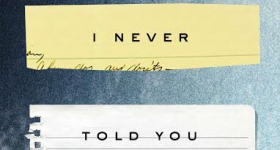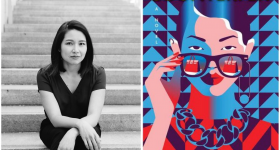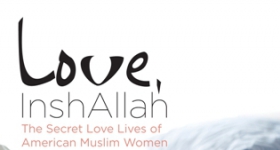Artist Ronald Kurniawan
At some point in your life, you probably wished you were somebody else. Oh, come on, you know you lied on that match.com profile about your height, or didn’t mention to your prospective employer that your “outside interests” involve illegal substances, or didn’t reveal to that girl you liked just how much you really
like computers.
Kenji Yoshino, Yale Law School professor and author of Covering: The Hidden Assault on Our Civil Rights, describes the pressure we all face to fit into society by downplaying our natural characteristics as “covering.” Covering isn’t hiding or outright pretending to be something other than what you are. Instead, it’s simply making yourself more palatable, or acceptable, to the society around you. Yoshino explains how, in today’s politically complex society, covering demands are being increasingly placed, asking people to downplay their culture, ethnicity, gender, religious affiliation, disability or sexual preference.
Do you think there are differences in the way covering occurs among 18 to 35-year-olds
versus people over 40?
KENJI YOSHINO: In my book, I break out four different axes of covering. There’s appearance, which is how you physically look, there’s activism, which is how politicized you are about your identity. There’s affiliation, which is how much you culturally
affiliate with that identity, and then there’s association, which is basically who you hang out with.
I feel like young adults, if they’re Asian American or African American, say, have to make these decisions all the time. Like, “Am I gonna sit at the soul table in the dining hall or blend into the white mainstream and be called an oreo or a banana… when I end up at the top of my class will I be told I’m acting white by some oppositional culture?” Those are really live, difficult issues.
What do you think is the most harmful and most dangerous aspect of covering to American society? What concerns you most?
What concerns me most about the continuing nature of covering demands is that it shows that discrimination is still very much with us, it’s just in a subtler form. In the first generation of discrimination, it was really easy to see because it was group-categorical and blatant, taking the form of “no racial minorities, no women, no gays, no individuals with disabilities, no religious minorities allowed.” The triumph of modern civil rights is that those forms of discrimination have been made formally illegal.
But now I feel like a subtler form of discrimination has risen to take its place, and that discrimination targets not the entire group, but rather the subset of the group that refuses to cover, that is, to assimilate to mainstream norms. So it’s not necessarily all African Americans who are singled out for discrimination, just the African Americans with cornrows. Not all gays, but gays who are seen as flamboyant. Not all women, but women who act too “feminine,” or talk about being mothers. ... What’s most troubling to me is this message of “you can be that particular identity, but you can’t do anything that shows you have pride in that identity, or affiliate with that identity, because to the extent that it’s within your control, you should change it.” Whereas for me, that’s the wrong question. The right question is: Is the demand to assimilate legitimate or not? Because if it’s illegitimate, then it shouldn’t matter whether I can assimilate or not, because I shouldn’t have to.
I’m in the process of reading the book, and I’m finding it easy to read and digestible. I’m not a lawyer, so that’s great for me! But I wanted to ask you, what are the legal implications of this?
Currently, if you’re fired for your skin color, like being African American, I want to be your lawyer, because you’re going to win your lawsuit in a hot second. But if you’re fired for doing something that’s within your control, like wearing your hair in cornrows, or talking Spanish in an English-only workplace, you can get fired and you will generally not get redress.
So how should the law be reformed? In 2004, the Supreme Court said that Congress could force the states to build ramps to their courthouses to make them [wheelchair] accessible. They could have decided that as a group-based equality case about how individuals with disabilities have to be treated the same as the able-bodied. But the court wisely didn’t do that. Instead it said that the case was about the “right to access the courts” possessed by all Americans. And if it takes a ramp for an American to access a courthouse, then we’ll build the ramp. So what we’re talking about isn’t like a special right for a particular group, but a universal right that we all have to access the justice system. I think that this is the way in which the Supreme Court is going, and even quite conservative judges with a libertarian streak will sign on to the liberty approach and they won’t sign on to the equality approach. It’s requiring the person who is making the demand for assimilation to bear the burden of justifying the assimilation.
Can you think of an instance where a quintessential straight, white, wealthy man would be forced to cover?
Whenever I talk about covering, I always get what I call “the angry straight white guy” reaction. Someone in the audience—usually a white man, usually quite angry—will stand up and say “Why shouldn’t you have to cover, because I have to cover all the time!” He’ll say, “I have to cover my
depression,” or “I have to cover my working class background.” or “I have to cover the fact that I was a survivor of abuse” or even a positive identity like “I always wanted to be an artist.”
I’m not saying all these forms of discrimination are the same, or that discrimination against racial minorities is the same as discrimination against poets. The law has to have priorities. And it has correctly ordered its priorities in protecting groups like race, sex, national origin, sexual orientation and disability. But I do think of the quest to uncover all these identities as similar, in that they are all about the desire for authenticity, for human flourishing. And for me the project of civil rights has always been a project of allowing individuals to pursue human flourishing without the weightless conformity based on bias or no reason.
Can you give me an example of one of the first times you realized you were covering?
When I started teaching at Yale Law School, about nine years ago, I was in my late twenties and I had been out of the closet for about six years. One of my colleagues took me aside and said, “You know, you’ll do a lot better here if you’re
a homosexual professional than if you’re a professional homosexual.”
I knew exactly what he meant, but I was also really bemused by it. I knew he was telling me to be the mainstream constitutional law professor who “happened to be gay” rather than the gay professor who wrote on gay subjects and engaged in gay activism. And he was genuinely trying to be helpful by saying, you know, just blend into the mainstream, rather than marking yourself as a minority. That was the first time I think it really hit me in the face.
I didn’t really take his advice, because I knew that gay rights was my passion, so I thought, well, if I don’t get tenure, then I don’t get tenure. To their credit, my colleagues really warmly embraced me. And I think that one of the dangers and really poignant aspects of the covering demand is that if you don’t uncover yourself and let people know who you really are, you also don’t really give them a chance to accept you for who you really are. So I never would have known the acceptance and collegiality that my colleagues gave me if I hadn’t had the guts to stand up for what I was really passionate about intellectually.
One of my friends wanted me to ask you a follow up question to this, which is basically like, are you ever shocked into the realization that you are Asian? Or you are gay? Like you’re going along not thinking about it and then suddenly, you realize, “Oh this person is treating me differently because of the way
I look.”
I think particularly for Asians, because we’re treated as such honorary whites so often, that there are those moments of shock. I never really thought about myself covering my Asian American identity until after I thought about the ways in which I had covered my gay identity.
I went to a prep school that had an Asian American group. But before I went there, I was the only Asian in all of my classes at the school that I attended through eighth grade. … So I went off to Exeter, and there were all these Asian people, and I called my father and I said, “You know there are all these Asian people here and they even have a group.” And he said, “Are you gonna join it?” And I said, “I don’t know.” And he said, “Well, what would they be able to teach you that you don’t already know?”
I thought that was a really interesting comment. Because his mantra was always “assimilate, assimilate, assimilate.” He advised me to be 100 percent American in America, be 100 percent Japanese in Japan. I spent summers in Japan growing up, and he always wanted me to be the person who could code switch and be perfectly comfortable in both societies.
I thought he was a lot like my colleague in that way, saying, again in a very loving way, “Don’t be the Asian American guy who runs the Asian American club. You should just mainstream yourself and do what the white kids are doing.” So I feel like that was definitely a recommendation to cover, because I feel like one of the ways in which we cover is disassociate ourselves from other people in our minority group. And I think that’s really sad.
Your discussion of covering reminds me of my parents warning me about peer pressure in my childhood, like “If you all your friends jumped off a bridge would you?” Do you see yourself as a sort of parental or authority figure on this matter—are you warning U.S. citizens about the dangers of assimilation?
I’ve never heard it put that way. I think one of the reasons I like talking to college age kids might be that I do have a kind of quasi-parental attitude towards them.
But second, I hope that to some degree I can kind of be a role model for them and say, you can actually be an activist on gay issues or identity politics issues and make it.
I didn’t cover my gay activism at any point in my life after I started my professional career and I have been embraced for that rather than punished. I think it’s really important that people realize that there’s great power in being who you are. When you’re talking from your passions and authentically yourself, I think people realize that, and recognize that, and they appreciate the courage it takes to do that. Even if they don’t approve of your underlying identity, they appreciate that you’re being real with them. 
Nicole Makris has been covering her frat boy identity her whole life. She’s a freelance writer and works for The SPIN Project, which helps social justice organizations access the media.









Comments